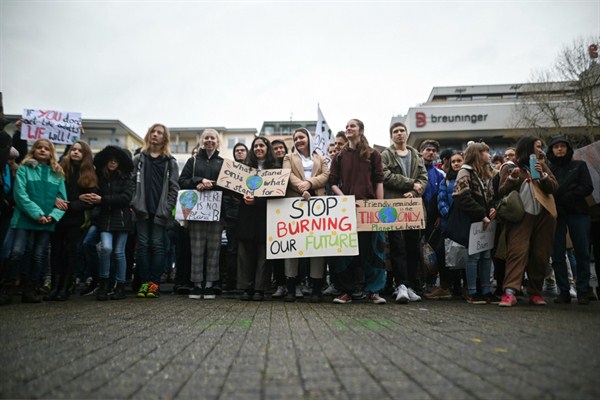STUTTGART—It is readily apparent that the southwestern state of Baden-Württemberg, nestled between France and Switzerland, is the heart of Germany’s automobile industry, with the wealth to show for it. A giant Mercedes Benz logo revolves atop the central train station’s clock tower in Stuttgart, the state capital, dwarfing rows of high-end stores and banks.
For nearly six decades, the conservative Christian Democrats, or CDU, a natural fit for the affluent state, dominated its politics. But that changed in 2011, when environmental concerns—related to both the local ramifications of plans to overhaul Stuttgart’s train station and the global repercussions of the Fukushima nuclear meltdown in Japan—unexpectedly became a flashpoint in that year’s election. Overlying those specific issues was a general sense that the CDU had lost touch with voters.
Baden-Württemberg suddenly became fertile ground for the political party known as the Greens. Officially formed in the 1980s, the left-leaning Greens had cultivated a reputation as a collection of outsiders who derided traditional politics. With their obvious environmentalist credentials and their long-standing engagement with community activists, they found themselves positioned for electoral success—and they capitalized on it. Though the CDU actually secured the most state parliamentary seats in the 2011 elections, it fell well short of a plurality large enough to form a coalition with its traditional partner, the classically liberal Free Democrats. That allowed the Greens, who came in second, to cobble together a coalition government with the traditional center-left Social Democrats, or SPD.

